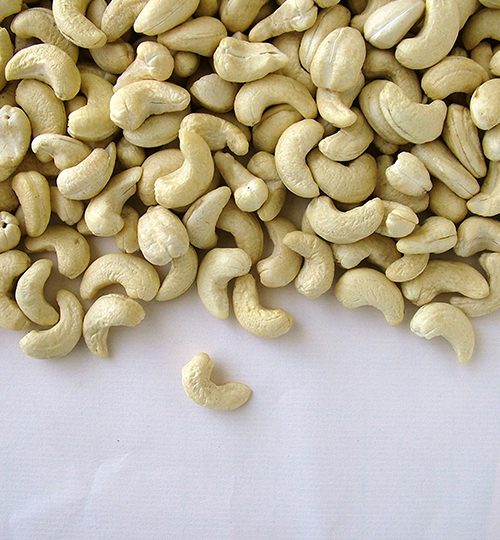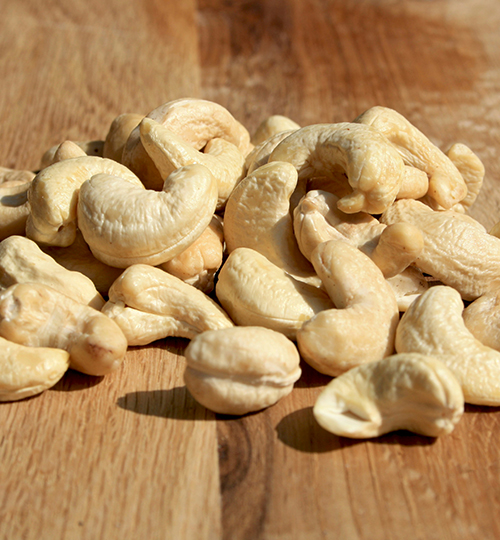Cashew Nuts
Cashew nuts are the kidney-shaped seeds that grow at the bottom of the cashew apple, a fruit produced by the cashew tree (Anacardium occidentale), native to northeastern Brazil. Today, they are widely cultivated in tropical regions around the world, including India, Vietnam, Nigeria, and Ivory Coast.





Nutritional Value
Cashews are rich in essential nutrients and make a popular choice for both snacking and cooking. A typical serving (about 1 ounce or 28 grams) contains:- Healthy fats: Primarily monounsaturated and polyunsaturated fats, which are beneficial for heart health.
- Protein: Around 5 grams per serving.
- Vitamins: Particularly rich in vitamin K, B vitamins (especially B6 and thiamine), and vitamin E.
- Minerals: Excellent source of magnesium, phosphorus, copper, manganese, and zinc.
Health Benefits
- Heart Health: Cashews contain healthy fats and antioxidants that can improve cholesterol levels and reduce the risk of cardiovascular disease.
- Bone Strength: High in magnesium and phosphorus, which are vital for bone formation and maintenance.
- Energy and Metabolism: The iron and copper in cashews help in energy production and enzyme function.
- Eye Health: Rich in lutein and zeaxanthin, antioxidants that protect the eyes from damage and may reduce the risk of age-related macular degeneration.
Culinary Uses
Cashews are highly versatile in the kitchen:- Snacking: Roasted, salted, or flavored for a crunchy snack.
- Cooking: Used in stir-fries, curries (like Indian korma), and desserts.
- Dairy Alternatives: Cashews can be soaked and blended into creamy sauces, vegan cheeses, and cashew milk.
- Nut Butters: Cashew butter offers a smooth, subtly sweet alternative to peanut butter.
Processing and Safety
Cashew nuts must be processed carefully. They are encased in a shell containing urushiol, a toxic resin also found in poison ivy. Raw cashews sold commercially have been steamed or roasted to remove this toxin.Environmental and Economic Impact
Cashew farming is labor-intensive, and there are concerns about labor conditions in some producing countries. Ethical sourcing and fair trade certification can help consumers support more sustainable and humane practices.We Provide the Best Service in Industry
Discover how we can help you achieve your goals. Our experts are here to listen, guide, and provide actionable solutions
